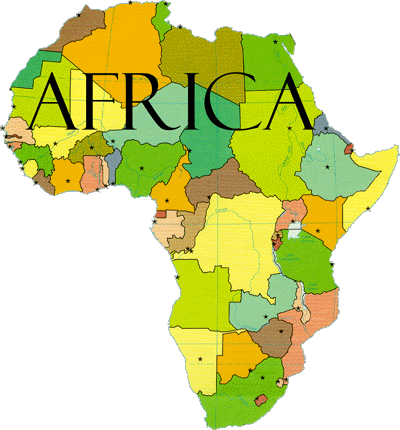Perpignan — France's National Assembly adopted a historic bill on Monday night that will allow members of parliament to debate policies on international development for the first time, and make French aid more transparent.
Pascal Canfin, development minister for the Socialist government, told the lower house that the legislation – promised by President Francois Hollande during his electoral campaign – marked "a new era: that of democratic control of our development policy".
"The time of African policy that looked behind us. The time of a policy that was, above all, managing the legacy of the past, the time – not so long ago – of a policy that was decided in the shadows – yes, that time is over," Canfin said.
Previously, French politicians had been able to vote only on the aid budget without being able to influence the direction of development policy.
France is the world's fourth largest donor government, providing official development assistance of 9.36 billion euros ($12.03 billion) in 2012, or around 10 percent of the global total.
The new law focuses France's international assistance on 16 priority countries in sub-Saharan Africa. From 2014, they will receive half of all France's aid donations, two thirds of which will be channelled through the government's development agency.
Countries bordering the south and east of the Mediterranean will benefit from technical and financial assistance, largely in the form of loans, to support democratic governance, agriculture, job creation and environmental improvements.
The law states that by 2017, 50 percent of France's development projects must contribute to reducing inequality between men and women.
In addition, the bill emphasises the environmental pillar of "sustainable development", alongside its social and economic aspects. France's development agency will prioritise support for renewable energy sources and smallholder agriculture, and will no longer finance projects that contribute to deforestation, nor those that promote the use of coal or genetically modified organisms (GMOs), Canfin told the French newspaper Liberation.
"If we want to fight extreme poverty in the world effectively, we must include the issue of environmental sustainability. Because, as the World Bank says, the biggest threat to food security is uncontrolled climate change," he said in an interview with the paper.
ONLINE, SMS FEEDBACK
One innovative aspect of the legislation – welcomed by aid groups that took part in its drafting – is an effort to improve the transparency of France's international assistance. A public opinion poll released in November showed that 81 percent of those surveyed wanted more information on the concrete impact of French aid.
A set of 30 indicators – measuring achievements on health, education, malnutrition and energy, among others – will be compiled and made available online to enable progress and results to be scrutinised.
Another initiative is web information that will explain how French aid is being used in detail in the African countries it has prioritised. The aim of these tools is to ensure aid is spent well, and to battle against corruption.
A site was already launched for Mali at the end of January, based on a map showing 52 projects across the west African nation, now recovering from a violent insurgency which France helped to put down. Members of the public – whether Malian or French – can send in emails or SMS messages alerting the French government to problems with particular projects or making suggestions about how to improve them.
While praising the Mali portal, Friederike Röder, director of ONE France, urged the government to extend transparency objectives to all of its aid in the new bill and not just to its priority countries.
0.7 PCT TARGET OMITTED
ONE France and other aid groups had also called for the longstanding international goal for wealthy governments to contribute 0.7 percent of their gross national income (GNI) in foreign assistance to be enshrined in law. But this was not in the bill adopted on Monday.
Canfin said in his interview with Liberation that total French aid had risen from 0.45 percent of GNI in 2012 to 0.47 percent in 2013 "in keeping with our values".
Speaking to MPs in the National Assembly, he said France had kept its level of aid stable using innovative financing such as a tax on air travel, despite the need for budget austerity. "We are not making, and will not make, the poorest people on the planet – those who live, or survive on less than a dollar a day – pay for our crisis," he said.
The debate on Monday also touched on the thorny issue of the corporate social and environmental responsibility of French companies operating in developing countries.
Referring to the collapse of the Rana Plaza commercial complex in Bangladesh last April, which killed more than 1,100 people, many of them textile workers, Canfin said legislators would be able to discuss the possibility of strengthening the due diligence businesses and their subsidiaries must follow. "In this way, we will contribute to pulling globalisation up to a higher standard," he said.
An amendment to the bill adopted on Monday introduced a clause on fiscal transparency for companies bidding for tenders with the French development agency. But Andre Schneider of the right-wing UMP party warned against opening a "Pandora's box" on corporate responsibility.
The bill will now be submitted to the Senate, the upper house, for further discussion.
On August 31, 2013, Der Spiegel reported that the United States' National Security Agency (NSA) had hacked into the … see more »
Read the original of this report on AlertNet Climate, the Thomson Reuters Foundation's daily news website on the human impacts of climate change.


